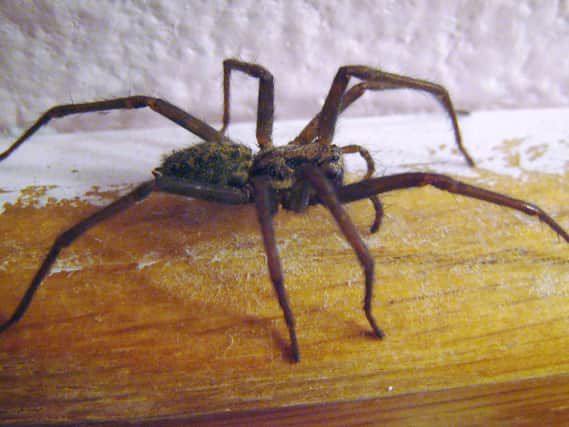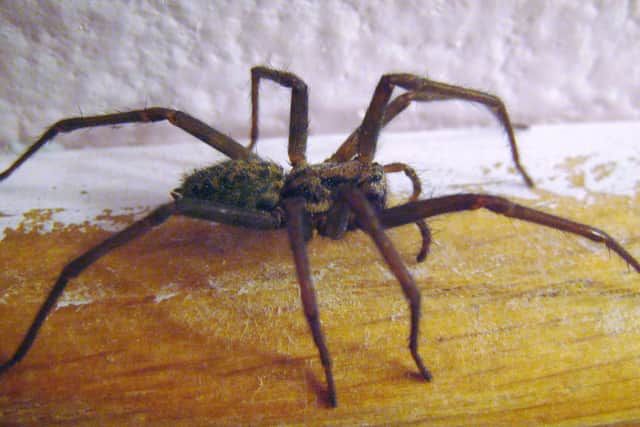SPIDER SEASON: How to stop house spiders coming into your home


House spider begin looking for a mate as the autumn breeding season approaches - which means they will be much more visible inside our homes.
Despite their fearsome looks, house spiders aren't dangerous - and can be safely taken back to the garden with a glass and a bit of paper.
Advertisement
Hide AdAdvertisement
Hide AdBut before you cast spiders out completely, remember they play an important role in your home's ecosystem - they eat flies, aphids, ants, moths and other pests that can clutter up your home.


If you'd prefer not share your home with our eight-legged friends - there are plenty of ways to keep them out of your house.
Keep your house clean and airy - Spiders love dark, damp, cluttered places. Vacuum and dust regularly, and don't allow clutter to build up. Store things in plastic lidded boxes rather than cardboard ones to prevent spiders gaining access. Keep your house filled with natural light - never leave blinds or curtains closed during the day or for prolonged periods of time if you're away from home.
Strong smells - Spraying corners, window sills and skirting boards with strong scents will deter house spiders from leaving their hiding places. Tea tree, rose, cinnamon, citrus, peppermint, citronella, lavender and eucalyptus can all work well, just make sure you renew the scent regularly.
Advertisement
Hide AdAdvertisement
Hide AdFill any gaps - Using either DIY filler or caulk is the easiest way to seal gaps in your walls and skirting boards as well as around doors and windows.
Get rid of spider hiding places - Cut back plants and clean up leaf litter near your home as these will provide the perfect hiding places for spiders.
Your feline friend - Cats are another great preventative measure as they love to hunt and chase spiders.
But don't use conkers! - There's no evidence that they're effective. Other strong aromas are likely to work better, such as garlic or vinegar. Conkers can also be poisonous so consult your vet if you have pets.